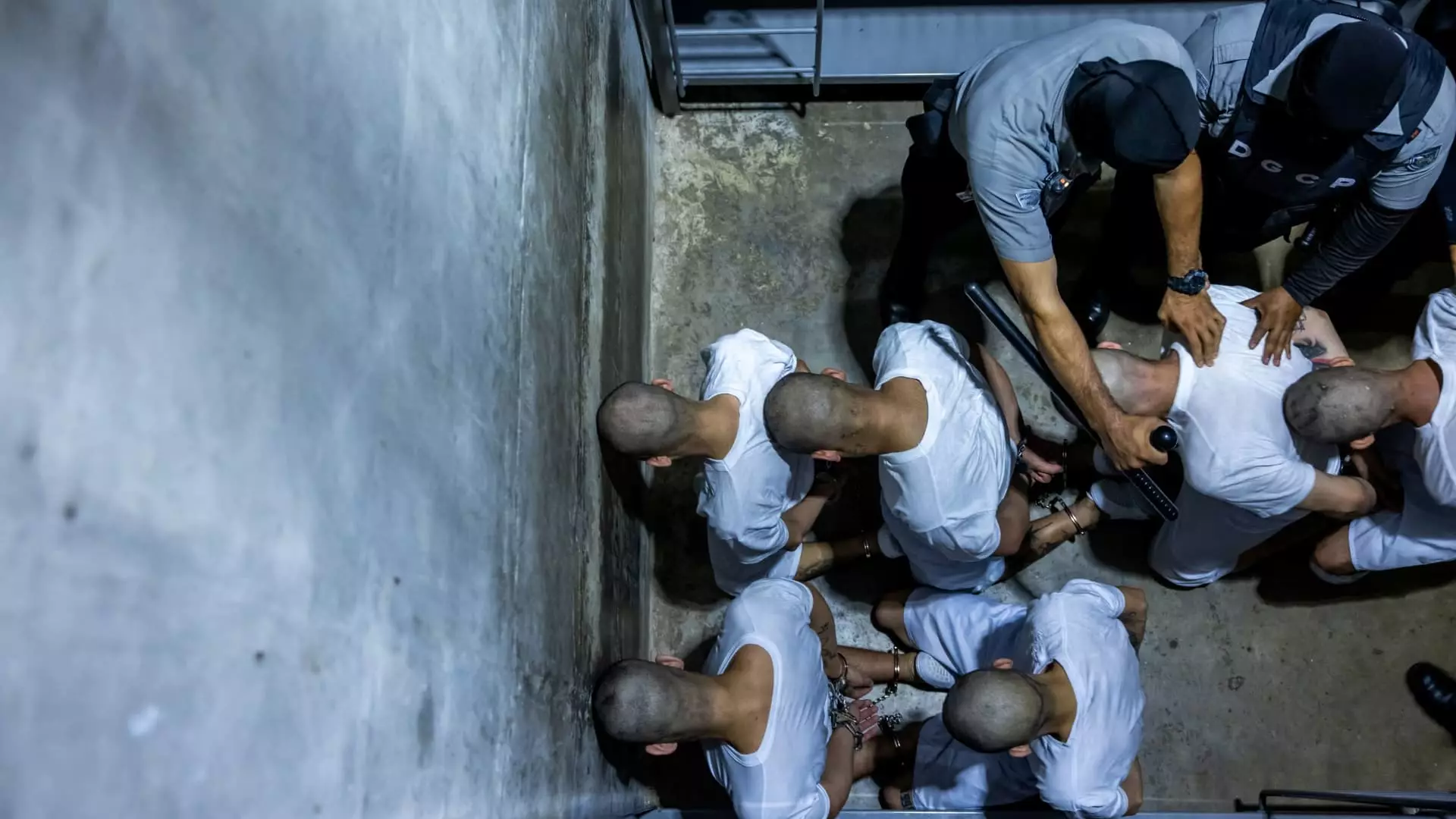The recent case involving Kilmar Abrego Garcia, a Maryland man mistakenly deported to a violent prison in El Salvador, serves as a stark reminder of the pitfalls of our immigration system and the chilling disregard for human rights. Here we witness a startling dysfunction: an entire governmental apparatus that—despite recognizing its own blunders—exhibits a reckless dismissal of the consequences faced by individual lives. It raises critical questions about accountability and justice in an era defined by fear-mongering and political posturing.
Abrego Garcia, who had been granted a work permit and was actively contributing to his community, found himself thrust into circumstances that many would consider nightmarish. Deported for what the administration claims was an “administrative error,” he was sent to face potential persecution from local gangs in a country infamous for its violence—the very scenario an immigration judge ruled against just a few years prior. This case unveils a grim reality: that bureaucratic mistakes can have life-altering, or even life-ending, consequences.
The Erosion of Judicial Oversight
To amplify the drama further, when U.S. District Judge Paula Xinis intervened and mandated Abrego Garcia’s return, the government promptly branded her order as “patently unlawful.” Such language underscores a dangerous trend in our political landscape: the increasing willingness of the executive branch to sidestep judicial authority when it suits its agenda. This incident exemplifies the constant tug-of-war between branches of power—one that should ideally be a checks-and-balances system, yet increasingly reads more like a theatrical farce.
Solicitor General D. John Sauer’s assertion that Judge Xinis’s injunction is merely part of a “deluge of unlawful injunctions” issued to slow President Trump’s agenda indicates a troubling perspective. Are we losing sight of the fundamental role of our judiciary? The implications of disregarding a judge’s orders resonate far beyond this specific case; they hint at an unsettling trend toward executive overreach, where individual rights are sacrificed on the altar of political expedience.
The Pervading Stigma and Pseudointellectualism
Layering this tragedy is the disconcerting narrative pushed by the administration branding Abrego Garcia as an alleged MS-13 gang member, a label that seems less about factual guilt and more about fitting him into a caricature the government aims to project. Such labeling strips away the identity of vulnerable individuals, transforming them into mere statistics in a broader political narrative designed to incite fear. The decision to vilify rather than seek truth demonstrates a fundamental failure in our obligation to human dignity.
Abrego Garcia’s attorneys highlight the absence of concrete evidence linking him to gang activity—yet the conflation of immigrants with criminality has become a disconcertingly effective political weapon. By capitalizing on fear, the administration diverts attention away from its own failings while perpetuating an environment where justice is synonymous with vilification and scapegoating.
Life in Limbo: A Personal Story of Resilience
Consider the personal stakes: a 29-year-old man, pursuing a better life for himself and his family, teaches us about resilience amid administrative chaos. Abrego Garcia was not only working towards a journeyman license but was also supported by a wife who is a U.S. citizen. His dreams, once thriving within the embrace of this nation, have been recklessly tossed aside as collateral in a political game.
The acknowledgment by a Justice Department lawyer that this man should not have been deported marks a pivotal moment—but it’s shrouded in layers of tragedy. The rapid removal of the attorney exemplifies the punitive backlash any voices of reason within a fractured system face. What does it say about our values when those advocating for justice are silenced?
A Call for Reflection and Action
As we absorb the troubling details surrounding Kilmar Abrego Garcia’s case, we must confront the moral complexities posed by policies that prioritize political expediency over human lives. This isn’t merely a story meant to provoke outrage; it should incite a movement toward systemic change. For those of us situated in the center of liberal thought, it’s incumbent upon us to critique these developments, demanding accountability and compassion from those in power before they become synonymous with injustice.
These stories of wrongful deportation and bureaucratic negligence are not just headlines; they represent lives disrupted, families torn apart, and communities rendered silent under the weight of governmental incompetence. It’s imperative to recognize the gravity behind these events, for in doing so, we can push towards a future that values human rights over administrative error.


Leave a Reply